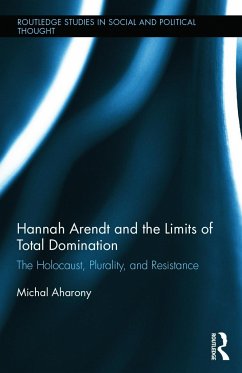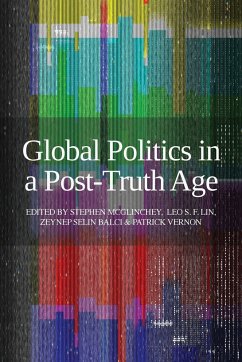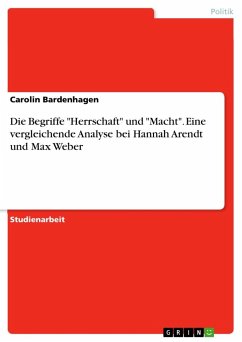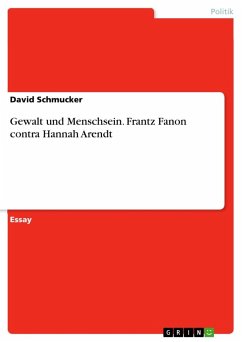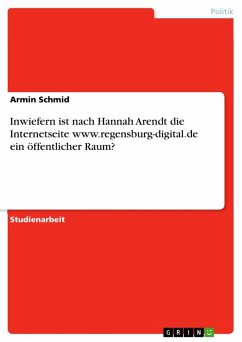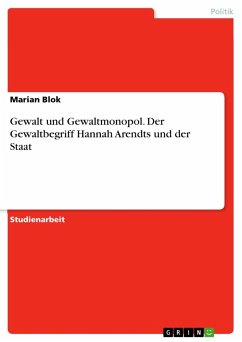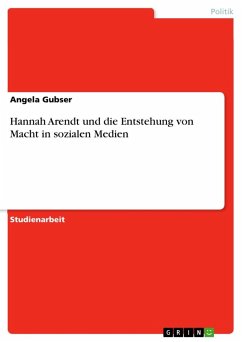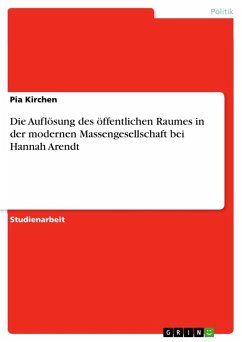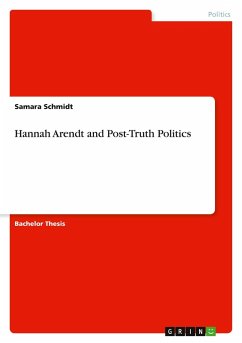
Hannah Arendt and Post-Truth Politics

PAYBACK Punkte
0 °P sammeln!
Bachelor Thesis from the year 2025 in the subject Politics - General and Theories of International Politics, grade: 1,1, Free University of Berlin (Otto-Suhr-Institut für Politikwissenschaft), language: English, abstract: The emergence of post-truth politics - a political culture in which emotional appeals, subjective beliefs, and deliberate falsehoods overshadow objective facts - has fundamentally challenged the foundations of liberal democracies. The destabilization of truth is not merely a byproduct of the digital age or mass media manipulation but represents a deeper erosion of trust in i...
Bachelor Thesis from the year 2025 in the subject Politics - General and Theories of International Politics, grade: 1,1, Free University of Berlin (Otto-Suhr-Institut für Politikwissenschaft), language: English, abstract: The emergence of post-truth politics - a political culture in which emotional appeals, subjective beliefs, and deliberate falsehoods overshadow objective facts - has fundamentally challenged the foundations of liberal democracies. The destabilization of truth is not merely a byproduct of the digital age or mass media manipulation but represents a deeper erosion of trust in institutions and authority. In this context, the deliberate use of disinformation and the fragmentation of the public sphere have heightened political polarization, making it increasingly difficult to establish common ground. These developments call for theoretical frameworks to diagnose and address this phenomenon. Hannah Arendt's political philosophy offers precisely such a framework. Her exploration of the fragile nature of factual truth, the role of organized lying in reshaping public perception, and the significance of authority and the public sphere sheds light on the dynamics of post-truth politics. Arendt's reflections not only elucidate how the systematic denial of truth destabilizes public trust but also demonstrate how this denial fractures the coherence of a shared political reality, leaving societies vulnerable to manipulation and authoritarian tendencies. This thesis argues that Arendt's distinctions between factual and rational truth, her critique of the loss of authority, and her conceptualization of the public sphere as a space for dialogue and plurality offer an indispensable lens for understanding post-truth politics. It explores how contemporary disinformation strategies parallel the mechanisms Arendt identified in totalitarian regimes, and how these strategies contribute to democratic backsliding. It further examines how these ideas provide insight into contemporary developments, such as the deliberate delegitimization of factual truth in public discourse, exemplified by Donald Trump's rhetoric on "fake news." By engaging with Arendt's work conceptually, this thesis seeks to deepen our understanding of the underlying forces driving post-truth politics and their implications for democratic stability.




